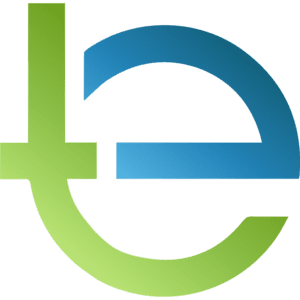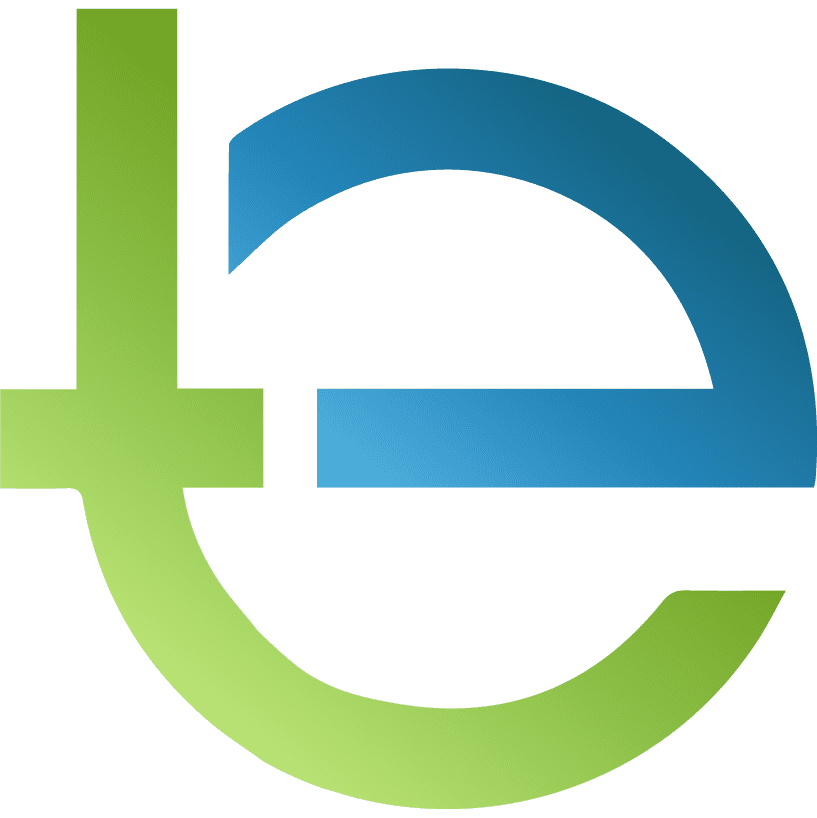NURS FPX 4040 Assessment 1
Capella University
FPX4040
Professor
July 2023
Nursing Informatics in Healthcare
In a healthcare organization nursing staff holds major importance and all the flow of work depends on them. Therefore, there is a need for an information system that can provide all sorts of information and knowledge to the nursing staff (Reid et al., 2022).
Nursing informatics is a paramount information technology tool in healthcare organizations that helps in providing better patient care with enhanced healthcare results. It maintains the medical record of patients and helps in effective communication between different departments digitally.
Additionally, it improves the implementation of evidence-based practices and innovative technologies. The prime rationale of nursing informatics is to maintain a digital repository, improve healthcare, and application of effective interventions. To obtain a digital record of patients, “Electronic Health Records” is an excellent electronic tool.
This assessment focuses on providing insight into nursing informatics and its beneficial role for healthcare organizations. Also, the importance of interdisciplinary collaboration and evidence-based practices in maintaining patients’ confidentiality will be highlighted.
Role of Nurse Informaticist
Healthcare informatics is an interdisciplinary approach to inculcating IT-based tools in healthcare practices and interventions for better planning, management, and delivery.
Nursing informatics is a subset of healthcare informatics which is an electronic tool that assists healthcare nurses to communicate patient records for effective healthcare intervention and outcome (Farzandipour et al., 2021).
Nurse Informaticists are trained and specialized nurses who are equipped with knowledge of using information technology. They are trained through a variety of skills, education programs, and liberal arts.
Nurse informaticist
The role of the nurse informaticist which is needed to be focused on by human resource managers (HR) and Chief Nursing Officer (CNO) are as follows.
Their major responsibility is to develop an efficient information system for the healthcare organization which will work through Clinical Decision Support System (CDSS), Electronic Health Record (HER), telemedicine, and telehealth digital tools.
NURS FPX 4040 Assessment 1
Nursing informaticist guarantees that the system is accessible, efficient, and easy to operate for the nurses. The sensible implementation of these systems can improve the provision of healthcare services.
Nursing Informaticist (NI) competencies can be defined as a bundle of knowledge, skillsets, and abilities that help NI to accomplish successful healthcare goals. Nurses are an important part of a healthcare system, and their success will be dependent on their competencies. These NI competencies are divided into three categories i.e., informatics knowledge, computer abilities, and informatics skills (Khezri & Abdekhoda, 2019).
A NI also maintains good coordination and collaboration with other healthcare teams (administrative and management) i.e., doctors, physicians, IT department, and pharmacists for better execution and management of the information system.
Furthermore, NI also works to improve the current quality of patient care by conducting different research with nursing tools and information systems.
Healthcare information systems
Also, they provide useful education and training to other nursing personnel on healthcare information systems for a better outcome. As information system deals with all kinds of patient information, therefore a nurse informaticist needs to follow all confidentiality laws, security protocols, and safety regulations.
Farzandipour et al., 2021 provide valuable literature on the importance of nursing informaticists, competencies, roles, and impact on healthcare system productivity. It helps in taking well-informed decisions and improves patient care.
Their studies show that nursing informaticists play a vital role in the successful running of a healthcare organization. It is really important for them to be proficient at all three competencies which are necessary for quality healthcare provision.
Healthcare organization
In this way, serious and complex issues can be avoided at a healthcare organization. The productivity of NI depends on individual efficiency and time investment in learning healthcare information systems (Farzandipour et al., 2021).
Nursing informaticist is an important job role that is admired by all other healthcare organizations for enhancing intervention provision, improving efficacy, and strengthening coordination between different healthcare workers. The NI program has also shown the best results and reduction in financial resources.
Collaboration of Nurses with Interdisciplinary Team
Designing a diligent care provision plan is important for securing better inter-professional communication between different teams and for better administration of patient health. Nurses are vital in healthcare organizations as they are responsible for patient care.
The organization’s overall performance can benefit from each interdisciplinary team member. Nurses’ assessment and evaluation are important for achieving the specific goals of a healthcare organization.
Nurses play a major role in patient treatment and care outcomes; therefore the evaluation will help in achieving better patient care and interventions. There should be good coordination between healthcare workers and nurses, which will help in problem-solving and decision-making for patient welfare.
Effective interdisciplinary collaboration and communication can improve patients’ health and decrease the probability of negative health impacts by decreasing mortality and morbidity rates.
Key Performance Indicators KPIs
For improvement of Key Performance Indicators KPIs, it is necessary for nurses to improve their communication and problem-solving skills which help in better decision-making and treatment provision. Sabone et al., 2019 have shown from the research study that better interdisciplinary collaboration between healthcare providers and nurses helps in better handling of ethical challenges not only in developed countries but also in developing countries.
In developing countries, there is a shortage of healthcare workers which increases the work tension between providers and nurses. Interdisciplinary collaboration also helps in managing workplace stressors which helps to increase the work productivity of the overall organization (Sabone et al., 2019).
NURS FPX 4040 Assessment 1
Nurses play a vital role in workers’ training and skill development. Therefore, a healthcare organization should involve nurses in designing training curricula and duty schedules with the assistance of nurses.
For the advancement of the healthcare information system and implementation of newer technologies at a healthcare organization, it is important to involve the feedback and ideology of a nursing informaticist (Cummings et al., 2020).
Technology has enabled everyone in a healthcare organization to record patient information and using EHR for better decision-making. By using digital platforms, doctors and patients can now connect virtually, book appointments, prescribe medicines, provide therapies, etc.
These positive interventions of technological tools have a positive impact on overall patient health and well-being. Now patients from any region of the world can connect easily with their doctors living somewhere else.
Medical assistance
The treatments which were impossible back then are now possible because of better technological connections. For the provision of timely healthcare services and immediate medical assistance, mobile phones and other digital platforms are playing a vital role. Digital health literacy needs complementary skills for general and health education (Smith & Magnani, 2019).
The sensible and fullest use of technology in healthcare can be enhanced using nursing informatics. Through information systems, assessment and monitoring of healthcare providers have become extremely easy which was difficult before the technological tools. Digital healthcare tools help to bridge the communication gap between doctors and their patients. This helps to understand the issues better.
For example, the provision of post-partum care is difficult because of transportation constraints but because of technological tools, healthcare organizations can strengthen their healthcare services. Many useful therapies can be provided by video calls, prescriptions can be ensured by text and voice messages.
Patient care quality
This also reduces the overall patient burden and workload on the hospitals and the overall quality of the intervention. Technology also has a financial benefit as it cuts cost in numerous ways like maintenance of online data, decrease in patient numbers in hospitals, and transportation cost. Healthcare digitalization can assist in fiscal management, patient care quality, and better worker productivity (Konttila et al., 2018).
Konttila et al., 2018 have summarized the role of technological advancement in healthcare organizations. The study shows that it is important for healthcare workers to having digital literacy. Technological tools can minimize the probability of medical errors, help in better skill learning, and provide best patient care.
The role of a nurse informaticist also focuses on overcoming challenges and enhancing opportunities for nurses and inter-professional groups. Opportunities for healthcare workers are betterment in patient well-being, and better medical treatment with integrated technology. NI assists in cutting financial costs, and time management, increasing the efficacy of the healthcare institute.
Improve coordination
They also improve coordination, skill development, and career progression. When nurses are provided with leadership roles, they help in choosing the appropriate technology, skill, and intervention implementation (Strudwick et al., 2019).
Challenges and problems may hinder the adoption of the healthcare system. These challenges may include financial constraints, an obsolete mindset, and difficulty in operation. The major problem is the patient’s confidentiality and privacy of his all personal and medical information. Also adopting a new system takes time for assimilation. However, if the technological tools are not adopted properly, it can affect healthcare productivity and quality (Gonçalves Nes et al., 2021).
NURS FPX 4040 Assessment 1
The Justification Behind the Need for a Nurse Informaticist in a Healthcare Organization
The healthcare regime has become critical, saturated, and data dependent. In such circumstances, the role of a nurse informaticist is extremely significant for a healthcare organization.
The requirement of nurse informaticists is validated by the rationale that healthcare practices need the integration of technological tools in it. Working with nursing leadership, NI can identify the individual needs of the staff and design an information system that meets their specific needs.
EHR is a valuable electronic tool that assists in improving the performance indicators and quality of healthcare workers. All healthcare workers can be benefited from electronic tools as these help in better collaboration with the patients. Healthcare digitalization requires a change in current policies, rules, regulations, and workplace environment (Konttila et al., 2018).
The use of technology can be promoted at a healthcare organization by nurse informaticists who help in improving patient care, decreasing clinical and technological errors, and managing, planning, and implementing secure technology protocols. Furthermore, NI assists in time and cost- management by ensuring smooth workflows with accurate data collection, and management integrated with technological tools.
Importance of technological tools
Based on stored data, healthcare organizations can take better decisions through punctual and valid analysis, composing patient reports which are credible, understandable, and helpful for achieving the desired patient outcome. Booth et al., (2021) have provided a study that highlights the importance of technological tools for the nursing profession.
Due to the advancement in technology, artificial intelligence (AI), robotics, the internet, and social media, the need for telehealth is increasing. Though the importance of nursing informaticists is advocated globally, still there are few NI across the world. Slow advancement in some areas of nursing informaticist is due to a lack of investment, weak infrastructure, and absence of leadership (Booth et al., 2021).
Technology has a positive impact overall on the improvement of work productivity as it ensures a smooth workflow through better interdisciplinary collaboration. Enhanced collaboration between different departments due to electronic tools reduces the burden on all staff members.
All the patient record is stored electronically which with one click becomes available to the healthcare workers, thus EHR has reduced the burden of manually storing the patient’s data. With more saved time, healthcare workers will focus on providing better and more intense patient care. Furthermore, healthcare information system or nursing informatics is cost-effective as it saves financial resources from multiple healthcare aspects (Farokhzadian et al., 2020). These finances can then be invested for some better cause.
Evidence-Based Strategies to Protect Patient Data and Health Information
Patient information is a confidential and private matter; thus, it should be kept secured and protected. Evidence-based practice and interdisciplinary collaboration can help to ensure patient privacy for preventing differences. The first stage in nursing informaticist is to provide the necessary education and training to the nurse personnel for patient protection.
This training should deliver deep insight into HIPAA regulations. HIPAA stands for Health Insurance Portability and Accountability Act, 1996, is a protocol that gives federal protection laws for patient information protection and the rights of patients in case of an information breach. It means that healthcare workers are obliged to protect the patient’s information and in case of any security breach patient holds a right to take legal notice (De Simone, 2019).
If there is a dire need to use patient information for some healthcare intervention, then proper patient consent should be taken. EHR is a valuable tool for the collection, storage, and processing of patient information (Kim et al., 2019). By data collection and storage, better healthcare provision can be ensured. For effective implementation of EHR at a healthcare institute, nurses should be trained properly. It is a cost-effective tool that provides enhanced patient care that is evidence-based.
EHR
EHR is regarded as the finest electronic tool for patient information management and processing. Lin et al., (2019) have studied the impact of EHR on the quality of patient care and intervention. EHR has been executed in a number of heterogeneous hospitals which has resulted in quality improvement.
Effective use of technological tools should be ensured by healthcare workers by controlling accessibility. Patient information should only be available to the authorized personnel of the hospital for better healthcare privacy. A variety of technological tools and software can do this task i.e., password, fingerprint, two-way-authorization, seniority-based access, etc. Evidence-based practice should be used to ensure secure data processing and transfer.
NURS FPX 4040 Assessment 1
An effective way to do it is by encryption which makes the data highly private and non-accessible. Cloud data repositories can store large amount of data and share them with specified streams. In this way, the need for encryption at every step is decreased (Andreas et al., 2021). Moreover, there is a need to develop a strong audit and monitoring system for preventing unauthorized and theft access to patient information storage.
A healthcare organization should form a response management system that will manage any security breach for healthcare information. Response or emergency systems will reduce the probability of security interference. Also, a risk assessment should be conducted on a regular basis for reducing any threat.
On the basis of the risk identified, mitigation and management plans should be executed immediately for any bigger loss. There should be strong coordination and collaboration between nurse practitioners, informaticists, and interdisciplinary teams. There should exist a high response from IT personnel for maintaining data management and security.
Conclusion
In a healthcare organization, nursing informatics is a technological advancement that strengthens patient care and entire work productivity. It uses a variety of electronic tools like EHR, EMR, CDSS, and telehealth which help in increasing the organizational workflow. With the adoption of digital systems, there is a need to ensure patient privacy security with the help of software. Nursing informaticist assists in the delivery of better healthcare provision, reduce over cost, and the need for large human resource.
References
Andreas, A., Mavromoustakis, C. X., Mastorakis, G., Do, D.-T., Batalla, J. M., Pallis, E., & Markakis, E. K. (2021). Towards An Optimized Security Approach To Iot Devices With Confidential Healthcare Data Exchange. Multimedia Tools and Applications, 80(20), 31435–31449. https://link.springer.com/article/10.1007/s11042-021-10827-x
Booth, R. G., Strudwick, G., McBride, S., O’Connor, S., & Solano López, A. L. (2021). How The Nursing Profession Should Adapt For A Digital Future. BMJ, 373(373), n1190.https://www.bmj.com/content/373/bmj.n1190
Cummings, E., Bichel-Findlay, J., Procter, P., Hübner, U., Honey, M., & Day, K. (2020). Nursing Informatics Education: A Global Perspective. Health Informatics, 153–166. https://link.springer.com/chapter/10.1007/978-3-030-53813-2_12
De Simone, D. M. (2019). When Is Accessing Medical Records a HIPAA Breach? Journal of Nursing Regulation, 10(3), 34–36. https://www.journalofnursingregulation.com/article/S2155-8256(19)30146-2/abstract
Farokhzadian, J., Khajouei, R., Hasman, A., & Ahmadian, L. (2020). Nurses’ Experiences And Viewpoints About The Benefits Of Adopting Information Technology In Health Care: A Qualitative Study In Iran. BMC Medical Informatics and Decision Making, 20(1).https://bmcmedinformdecismak.biomedcentral.com/articles/10.1186/s12911-020-01260-5
Farzandipour, M., Mohamadian, H., Akbari, H., Safari, S., & Sharif, R. (2021). Designing A National Model For Assessment Of Nursing Informatics Competency. BMC Medical Informatics and Decision Making, 21(1). https://bmcmedinformdecismak.biomedcentral.com/articles/10.1186/s12911-021-01405-0
Gonçalves Nes, A. A., Alexander Steindal, S., Hamilton Larsen, M., & Camilla Heer, H. (2021). Technological Literacy In Nursing Education: A Scoping Review. Journal of Professional Nursing, 37(2), 320–334.https://www.sciencedirect.com/science/article/pii/S8755722321000089?via%3Dihub
Khezri, H., & Abdekhoda, M. (2019). Assessing Nurses’ Informatics Competency And Identifying Its Related Factors. Journal of Research in Nursing, 24(7), 529–538. https://journals.sagepub.com/doi/10.1177/1744987119839453
Kim, E., Rubinstein, S. M., Nead, K. T., Wojcieszynski, A. P., Gabriel, P. E., & Warner, J. L. (2019). The Evolving Use of Electronic Health Records (EHR) for Research. Seminars in Radiation Oncology, 29(4), 354–361. https://www.sciencedirect.com/science/article/abs/pii/S1053429619300426?via%3Dihub
Konttila, J., Siira, H., Kyngäs, H., Lahtinen, M., Elo, S., Kääriäinen, M., Kaakinen, P., Oikarinen, A., Yamakawa, M., Fukui, S., Utsumi, M., Higami, Y., Higuchi, A., & Mikkonen, K. (2018). Healthcare Professionals’ Competence In Digitalisation: A Systematic Review. Journal of Clinical Nursing, 28(5-6), 745–761.https://onlinelibrary.wiley.com/doi/10.1111/jocn.14710
Lin, Y.-K., Lin, M., & Chen, H. (2019). Do Electronic Health Records Affect Quality of Care? Evidence from the HITECH Act. Information Systems Research, 30(1), 306–318. https://pubsonline.informs.org/doi/10.1287/isre.2018.0813
NURS FPX 4040 Assessment 1
Reid, L., Button, D., Breaden, K., & Brommeyer, M. (2022). Nursing Informatics And Undergraduate Nursing Curricula: A Scoping Review Protocol. Nurse Education in Practice, 65, 103476. https://www.sciencedirect.com/science/article/abs/pii/S1471595322001901?via%3Dihub
Sabone, M., Mazonde, P., Cainelli, F., Maitshoko, M., Joseph, R., Shayo, J., Morris, B., Muecke, M., Wall, B. M., Hoke, L., Peng, L., Mooney-Doyle, K., & Ulrich, C. M. (2019). Everyday Ethical Challenges Of Nurse-Physician Collaboration. Nursing Ethics, 27(1), 206–220. https://journals.sagepub.com/doi/10.1177/0969733019840753
Smith, B., & Magnani, J. W. (2019). New Technologies, New Disparities: The Intersection Of Electronic Health And Digital Health Literacy. International Journal of Cardiology, 292, 280–282. https://www.internationaljournalofcardiology.com/article/S0167-5273(18)36997-3/abstract
Strudwick, G., Nagle, L., Kassam, I., Pahwa, M., & Sequeira, L. (2019). Informatics Competencies for Nurse Leaders. JONA: The Journal of Nursing Administration, 49(6), 323–330. https://journals.lww.com/jonajournal/abstract/2019/06000/informatics_competencies_for_nurse_leaders__a.9.aspx
FAQs
A nurse informaticist can play a key role in promoting a measurable return on investment in healthcare by utilizing their expertise to implement technological solutions for improving patient care outcomes. By leveraging flags and alerts in a technological database, the nurse informaticist can effectively notify medical staff of any deviations in clinical values or changes in patient status.
The integration of flags and alerts into technological databases has the potential to significantly enhance patient care outcomes. By leveraging the expertise of a nurse informaticist, these systems can be tailored to promptly notify medical staff of any deviations in clinical values or alterations in the patient’s condition.
The nurse informaticist plays a crucial role in bridging clinical practice and technology in the workplace. They are responsible for analyzing data and utilizing technology to enhance patient care. By leveraging advancements in technology, the nurse informaticist helps improve patient care outcomes through the implementation of flags and alerts in the technological database.
These notifications serve as valuable tools for the medical staff to stay informed about any critical changes or abnormal clinical values, ultimately contributing to the delivery of high-quality care in the healthcare setting. In essence, the nurse informaticist acts as the linchpin that integrates clinical practices with innovative technology to elevate the quality of care provided to patients.
Some challenges in nursing informatics that require collaboration to address include the need to build a stronger infrastructure for directing education, research, and practice in nursing informatics. Enhancing the recognition and appreciation of nurse informaticists for their valuable contributions to healthcare staff is another vital challenge that necessitates collaboration.
Additionally, there is a need to increase the dissemination of scientific evidence supporting the relevance of nursing informatics across various healthcare settings. Collaboration is essential to effectively tackle these challenges and advance the field of nursing informatics.
The involvement of a nurse informaticist can lead to a measurable return on investment in healthcare settings through various key contributions. Nurse informaticists optimize workflows, enhance patient care outcomes, and ensure patient confidentiality using electronic tracking systems. Their expertise in designing and implementing electronic tools, conducting workflow analysis, and training staff in digital solutions can result in reduced errors, prevention of workplace burnout, and improved patient safety.
By facilitating early interventions, streamlining processes, and enhancing care quality, nurse informaticists help healthcare organizations achieve cost savings and improved financial performance. Overall, investing in nurse informaticists not only leads to better patient outcomes but also drives operational efficiency and enhances overall healthcare delivery, thereby yielding tangible returns on investment.
A nurse informaticist takes on a vital role in supporting healthcare providers as they navigate through technological changes and transition their workflows accordingly. They play a crucial part in ensuring a smooth transition by offering in-service training to staff on new technologies such as Electronic Health Records (EHR).
By providing hands-on assistance and guidance during the implementation of these advancements, nurse informaticists help ease the potential tension and stress that can arise during workflow changes. Their presence and support throughout the transition process aim to facilitate a seamless and stress-free adaptation to the evolving technological landscape in healthcare.
The presence of a nurse informaticist can significantly enhance patient care outcomes through their expertise in leveraging technology to innovate and streamline healthcare processes. By collaborating with the IT department, a nurse informaticist can develop new programs and workflows that enable accurate monitoring of patient data such as food and fluid intake, vital signs, lab results, and medication compliance.
These capabilities enable healthcare providers to closely track and manage patient information more efficiently, leading to quicker identification of potential issues. Alerts can be set up to notify care providers promptly in case of abnormal values, allowing for timely interventions that can positively impact patient health and contribute to improved outcomes.
Furthermore, the nurse informaticist plays a crucial role in optimizing data management systems to ensure relevant information is readily available to healthcare teams, thus enabling them to provide more effective and personalized care to patients.
Nursing informatics is a multifaceted discipline that merges the foundational principles of nursing science with a spectrum of information and investigative sciences. It provides a platform for classifying, defining, guiding, and synthesizing data, information, understanding, and expertise within the realm of nursing practice. This integration enables a seamless interaction between the knowledge and methodologies of nursing with the analytical tools and insights derived from information and investigative sciences, facilitating enhanced decision-making processes and outcomes in the healthcare field.
A nurse informaticist can significantly enhance patient care outcomes by collaborating with the IT department to design and implement innovative programs, workflows, and templates. Through careful monitoring of patient data such as food and fluid intake, vital signs, lab results, and medication compliance, the nurse informaticist can identify critical patterns and trends that may impact patient health.
By developing and utilizing specialized tracking programs, the nurse informaticist ensures that healthcare providers are promptly alerted to any concerning values or deviations, enabling quicker interventions and more proactive management of patient needs. This proactive approach can lead to improved patient outcomes as potential issues are identified and addressed at an earlier stage, ultimately resulting in better overall care and health for patients.








